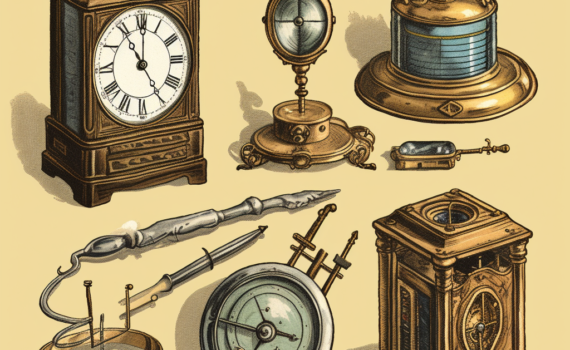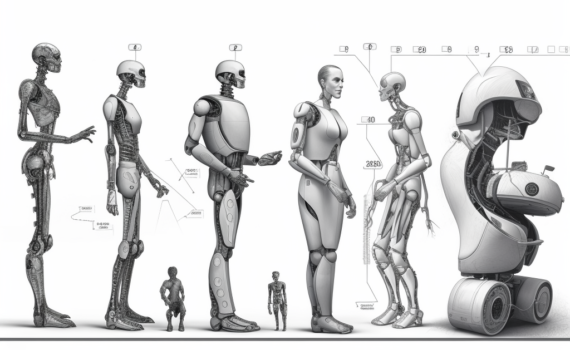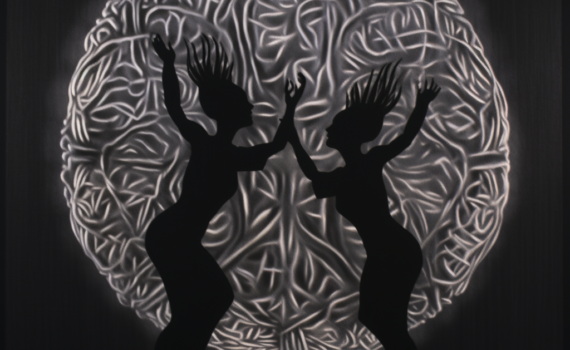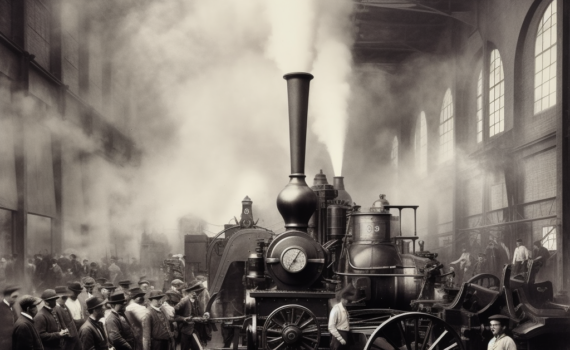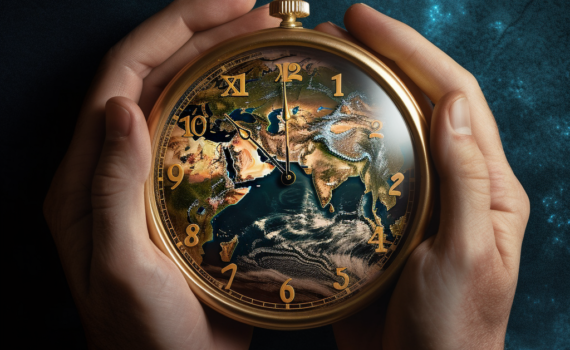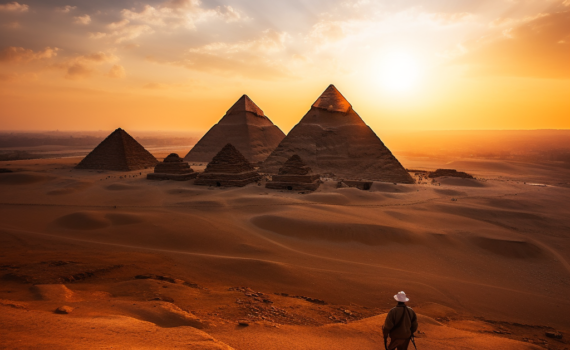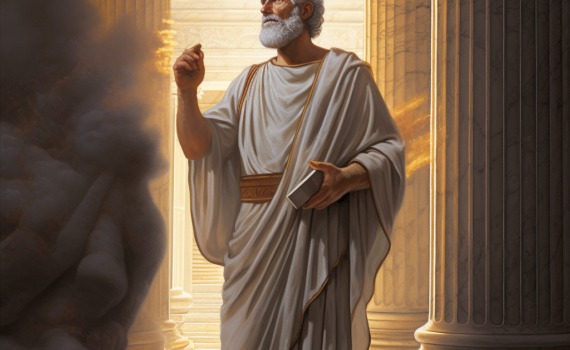Dear Reader, Today, let us turn our gaze to a different canvas, one that rises from the earth, reaches for the sky, and exists all around us – architecture. From the cave dwellings of our ancient ancestors to the skyscrapers piercing the heavens, architecture is a testament to human values and aspirations expressed in physical form. “Architecture is frozen music,” Johann Wolfgang von Goethe once famously said. Each structure, whether it’s a humble abode or a grand monument, tells a story. Much like a symphony, architecture is a harmonious blend of different elements – form, function, and aesthetics, all coming together in a composition that impacts our daily lives. The architects of the ancient world were our first, unsung heroes. From the awe-inspiring pyramids of Egypt, epitomizing the quest for immortality, to the glorious Parthenon in Athens, symbolizing the ideals of democracy, architecture was the physical manifestation of society’s values. […]
Monthly archives: May 2023
Howdy, art and music enthusiasts! Many a time, in my meanderings through life, I have wondered: can a vibrant painting sing? Can a symphony paint a picture? Today, we venture into the fascinating realm of synesthesia and the entwining relationship between art and music. In this journey, we look back to the ancient Greeks who, in their characteristic wisdom, saw music and the visual arts as inseparable sisters among the Muses. Fast-forward to the modern age, and we see this connection living on in Kandinsky’s ‘Color Studies,’ where he likened painting to orchestrating a symphony, with every color producing a unique sound in the viewer’s mind. Our exploration takes us further into the intriguing concept of synesthesia, a neurological condition where stimulation of one sensory pathway leads to automatic, involuntary experiences in a second sensory pathway. The great Russian composer Alexander Scriabin, a synesthete himself, created symphonies that were a […]
Greetings, dear readers! Today, let’s embark on a journey through time. And what better vessel for such a voyage than the very device humans invented to keep track of it – the clock? From sundials to smartwatches, humans have found ingenious ways to harness and measure the passage of time, each invention a reflection of the scientific and cultural context of the era. Our journey begins in the ancient world, where the sun and the shadows it cast were the earliest timekeepers. The sundial, developed independently in many parts of the world, was among the first instruments humans used to mark time. It was ingenious in its simplicity – a stick or obelisk casting a shadow on a circle or semi-circle marked with hours. However, its utility was curtailed by clouds and the inevitable darkness of night. With the flow of time came the flow of water. Clepsydras, or water […]
Good day to you, dear readers! Our fascination with creating life-like mechanisms dates back to ancient times, with automatons and mechanical toys found in civilizations like Ancient Greece and China. Fast forward to today, and we’ve made remarkable strides in the field of robotics. They’ve become an integral part of our lives, from manufacturing industries to exploratory missions in space and the deep sea. But how did we arrive here, and where are we headed next? Let’s embark on a brief journey through the evolution of robotics, shall we? In the early 20th century, robots were merely science fiction, seen only in books and films. It wasn’t until 1961 that the first industrial robot, Unimate, was introduced to the assembly line of a General Motors plant. Unimate was a simple robotic arm, designed to perform repetitive tasks that were too dangerous for humans. This marked the beginning of a new […]
Greetings, readers! Percival Q. Higginbottom here with another pondering to share with you. Today, I find myself drawn to the subtle charm of the written word, more specifically, letters. And it’s only appropriate that our exploration revolves around the fascinating world of epistolary novels, the unsung heroes of literary storytelling. In our fast-paced, digitalized world, where emails, texts, and instant messages have supplaced hand-written letters, the art of writing and receiving letters might seem antiquated. Yet, there’s an undeniable warmth and intimacy associated with letters, a feeling that has been preserved and celebrated in epistolary novels. Epistolary novels, if you are unfamiliar, are stories told entirely through correspondence, traditionally letters, but expanded in modern literature to include diary entries, newspaper clippings, emails, or even text messages. This unique form of storytelling dates back to early literary history, with one of the earliest examples being “Love-Letters between a Nobleman and his […]
Dear Readers, Today, let’s embark on a flavorful voyage through time, tracing the footprints of the legendary spice routes that forged connections across continents, shaping what we now savor as world cuisines. If you’ve ever found yourself marveling at the fiery kick of chili in a Thai curry, the fragrant notes of cinnamon in Moroccan tagine, or the warm, earthy tones of cumin in Indian dal, then you’ve already begun to appreciate the magic of spices. These diminutive powerhouses of flavor have been the cornerstone of culinary traditions around the world and have incited adventure, exploration, and even wars throughout history. The Spice Routes, often known as the Maritime Silk Roads, were sea lanes connecting the East with the West. From the 2nd century BCE until the 16th century, they served as conduits for trade, particularly in spices. While the main goods were black pepper and cinnamon, other commodities such […]
The human mind has been described as an iceberg, with only a fraction of its operations visible above the surface of conscious awareness. Two of the most fascinating aspects of this submerged expanse are intuition and logic—two sides of the same cognitive coin. It’s an age-old dichotomy that has occupied the thoughts of psychologists, philosophers, and curious minds alike. In this blog post, I, your amiable host Percival Q. Higginbottom, will tread lightly but curiously into the intriguing dance of intuition and logic. Intuition, that mysterious gut feeling, that sixth sense, is a form of knowing that appears to bypass the rigorous procedures of logic and reason. It’s the hunch, the inexplicable certainty, the instantaneous recognition of a pattern before it fully forms. It’s a form of cognition that seems to spring from the deep, hidden realms of our unconscious mind, popping up in our consciousness like an unexpected, yet […]
Oh, dear friends, let us ponder on the magical era that was the Age of Steam, a time of grand machines that chuffed and puffed, carrying us into a new world of industry and invention. These mighty mechanisms transformed our society in ways unimagined and have left a lasting impact even in our digital age. The mid-1700s marked the beginning of an era known as the Industrial Revolution, a fascinating period where mankind dared to defy nature, harnessing its power for extraordinary endeavors. The star of this era was none other than the steam engine, a fantastic piece of machinery that instigated unprecedented change and progress. Before this mighty invention, the energy for all tasks, be they related to industry or daily chores, was primarily derived from manual labor or animals. Water and wind power were utilized, of course, but they were subject to the whims of Mother Nature, limiting […]
Ah, my dear ponderers, another beautiful day to question, to wonder, and to share with you all the musings that have been occupying my mind of late. Today, I have been contemplating life, that grand and glorious river that courses through the landscape of our existence. Each moment in our lives, it occurs to me, is like a stone in that river, a place to pause, to rest, to take stock of the journey so far and the journey yet to come. We may look back on the stones we have traversed with nostalgia, regret, or joy, each one a testament to a moment in time. The river of life sweeps around them, always moving, always changing, and always bearing us towards the next stone, the next moment in time. And what of the stones yet to come? They lie ahead of us, obscured by the mists of time and […]
Greetings, dear friends! Your humble servant Percival Quincy Higginbottom is here once more, bringing you reflections and insights from our fascinating world. Recently, I’ve been rather preoccupied with an issue that touches each and every corner of our globe: climate change. Science has long forecasted the challenges and changes that our planet faces, yet it seems we are constantly grappling with how to translate these findings into effective, tangible policies. Climate science, as intricate as a spider’s web, weaves together data from the deepest oceans to the highest skies. The sum of this knowledge brings us a stark truth: human actions are warming our planet at an alarming rate. Yet, it’s the application of this science in our daily lives and policy-making that proves a stiffer challenge than drinking tea without biscuits. When scientific evidence is clear and compelling, it should be the north star guiding our decisions. However, dear […]
Greetings, dear readers! Percival Quincy Higginbottom here, your resident explorer, fresh from a fascinating sojourn to the sun-scorched lands of Egypt. Today, I bring you tales woven in the sands of time, the echoes of a civilization that reached its zenith thousands of years ago, and my personal observations from one of the world’s most significant historical landmarks: the Pyramids of Egypt. Few structures on Earth can match the raw, imposing majesty of these ancient wonders. Staring at the Great Pyramid of Giza, one feels an overpowering sense of reverence, an overwhelming reminder of our place in the timeline of human history. Built as grand tombs for the pharaohs, these pyramids are a testament to the incredible engineering prowess of the ancient Egyptians. The construction logistics of these massive structures remain a point of intellectual debate even today. How did a civilization from 4,500 years ago move such colossal stone […]
Dear Reader, From the ancient, bustling streets of Athens to the cyber avenues of the internet, the human pursuit of happiness remains an evergreen topic. Today, I invite you to explore with me one of the most profound conceptions of happiness, an idea that emanated from the brilliant mind of the Greek philosopher Aristotle – ‘Eudaimonia.’ Aristotle’s conception of Eudaimonia, often translated as ‘flourishing’ or ‘the good life’, is far more nuanced than the simple pursuit of fleeting pleasures or accumulation of material wealth. For Aristotle, Eudaimonia is the highest human good, the end towards which all our activities aim. But what does it mean to ‘flourish’? According to Aristotle, human flourishing involves the fulfilment of our unique potential as rational beings, essentially through a life of virtue and moral excellence. In other words, it is not enough to merely experience pleasure; one must strive for moral and intellectual growth. […]

